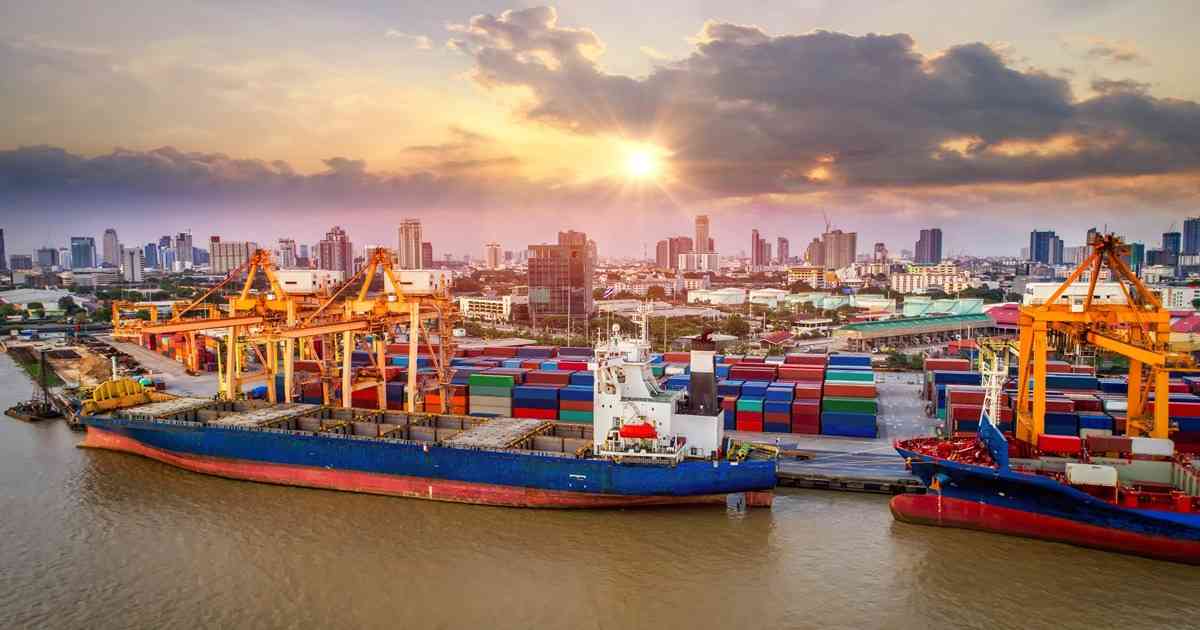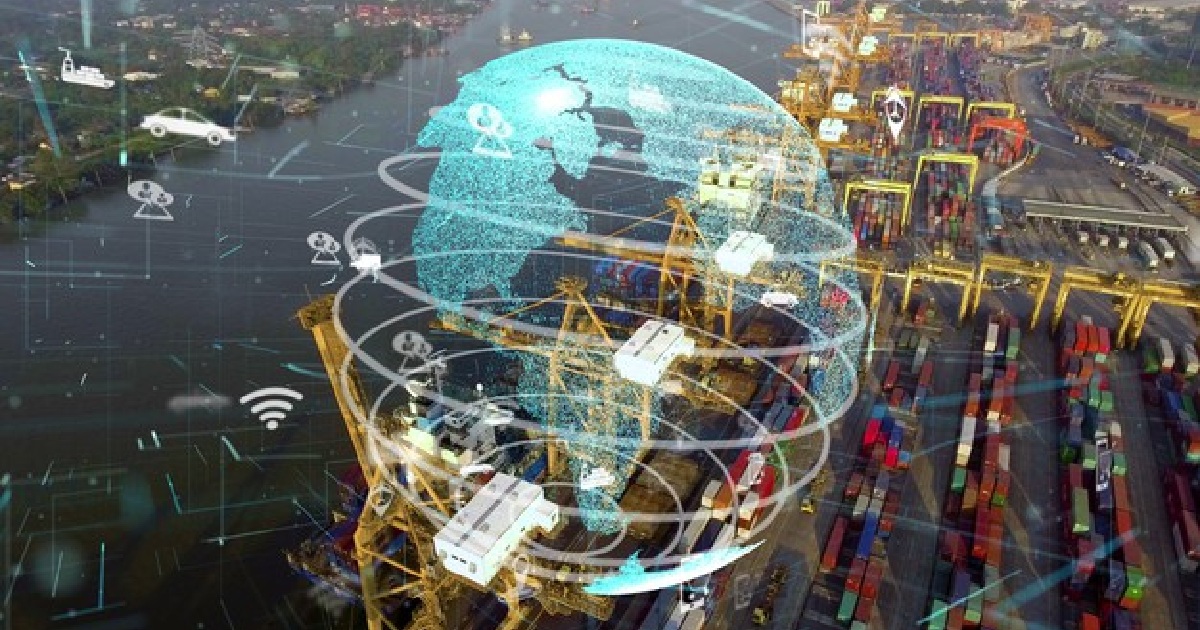
Warehousing and Distribution
Article | July 11, 2023
Discover future trends & innovations at upcoming warehousing conferences and events. Explore technologies, growth opportunities and networking possibilities to improve the supply chain operations.
Warehousing and distribution play crucial roles in the logistics industry. To enhance the expertise and gain a competitive edge, professionals must attend logistics conferences in 2023, including the supply chain management and warehousing conferences and events. These gatherings offer a platform for industry leaders to exchange ideas, learn from experts, and explore the latest advancements.
The following warehousing conferences and events will provide tailored discussions on warehouse optimization, inventory management, and process improvement.
1. ASCM Connect 2023: Europe
June 27-28, 2023 | Brussels (Belgium)
ASCM CONNECT 2023: Europe, held at DoubleTree by Hilton Brussels City, is a must-attend event for supply chain professionals. This networking opportunity will offer educational sessions, trending topics, and valuable insights from industry leaders like Matteo Coppola (Integrated Business Planning Director Kellogg), Hans Ehm (Senior Principal Engineer Supply Chain and Head of Supply Chain Innovations Infineon), Juliana Hsuan (Professor, Operations Management and Supply Chain Management Copenhagen Business School), and more. Logistics and supply chain industry leaders will benefit from the event by gaining knowledge on supply chain management trends and innovations. One of this logistics events further equips professionals with the tools to streamline operations, improve efficiency, and reduce costs.
2. Innovation and Industrial Logistics (ICIIL 2023)
August 25-27, 2023 | Tapi (Macao)
The 9th International Conference on Innovation and Industrial Logistics (ICIIL 2023) is an exclusive supply chain conference for logistics and warehouse management industry leaders. The conference will include topics like purchasing, supply chain management, transportation, and warehouse optimization. This warehouse event will offer valuable insights into the latest trends and advancements. Professionals will be able to network with experts and peers, fostering collaboration and partnerships. Attending ICIIL 2023, held at the Macau University of Science and Technology, will enable attendees to enhance their expertise, optimize operations, and stay ahead in the dynamic supply chain and logistics industry.
3. ASCM Connect 2023: North America
September 11-13, 2023 | Louisville (Kentucky)
An indispensable supply chain event for logistics industry leaders will have 120+ speakers, 70+ education sessions, and eight innovation labs. This premier event will offer a comprehensive program with thought-provoking insights, hands-on workshops, and networking opportunities. Keynotes by influential figures such as John J. Sullivan (Former United States Ambassador to Russia (2020-2022)), Elliott Harris (United Nations Chief Economist), and Amanda Manna (Futurist and Vice President, Singularity University) will further enhance the experience. Attending ASCM CONNECT 2023 will enable professionals to stay ahead in the dynamic supply chain industry and encourage them to enlarge their network with people having different ideas from the industry to improve business operations.
4. Automotive Logistics and Supply Chain
September 26-28 2023 | Dearborn (Michigan)
A pivotal event for the supply chain and logistics industry, Automotive Logistics & Supply Chain Global will offer the opportunity to regain control and confidence in North America's automotive supply chain after years of crisis. It will explore the impact of policies on supply chain operations and emphasize the importance of building diverse and inclusive teams. Key speakers include Renee Wawrzynski (Executive Director of Global Logistics at General Motors), Chris Styles (Vice President of Logistics at Lucid Motors), and Oliver Bilstein(Vice-President Production Control, Logistics, and Material Control. BMW Manufacturing Co.), and others will share valuable insights. In addition, this warehouse conference event will be equipping professionals to navigate the challenges of a rapidly changing industry.
5. LogiPharma
October 04-06, 2023| Boston (Massachusetts)
This event for pharma, biotech, and medtech supply chain executives in North America, has been a beacon of innovation and best practices since its inception in 2002. From a network monitoring expert's perspective, attending LogiPharma offers industry leaders in the supply chain and logistics industry an unparalleled opportunity to stay ahead of the curve. By bringing together supply chain leaders from the manufacturing and distribution sectors, LogiPharma will promote collaboration and enhance supply chain management effectiveness. Attending this logistics and pharmacy conference will enable executives to be updated with industry trends and build vital relationships through interactive sessions and workshops by key speakers like Samir Gami (Sr. Director of Advanced Customer Capabilities Johnson & Johnson - Janssen), Ed Ram (Sr. Director, Supply Chain Sagent Pharmaceuticals), David Sokoloff (Director, Global Logistics & Materials Management Novavax), and more. Prepare to transform the business and build a resilient supply chain in the dynamic pharmaceutical industry.
6. Logistics Technology USA 2023
November 1-2, 2023 | Dallas (Texas)
To foster growth and disruption in the logistics industry, Logistics Technology USA is the premier event where logistics technology innovators gather. This warehouse management conference will offer logistics service providers the opportunity to experiment, break barriers, and create the future of logistics. With a focus on cutting-edge technologies like machine learning, drones, robotics, and artificial intelligence, attendees can gain valuable insights to enhance their businesses. Key speakers will share their expertise, including Pritha Mehra (Chief Information Officer and Executive Vice President of USPS), Ben Cubitt (Senior Vice President of Procurement and Engineering Uber Freight), Geoff Kelley, and others. Further, the conference will offer valuable sponsorship opportunities to get your brand in front of prospects and clients who can transform your business. The networking sessions also facilitate meaningful connections, helping kickstart sales cycles and accelerate business development efforts.
7. 7th Annual European Supply Chain Management Summit
November 07-08, 2023 | Las Vegas (US)
The European Supply Chain Management Strategies Summit is a leading supply chain conference that will offer senior leadership case studies and solutions. This event's primary focus will be to improve logistics and inventory management, implement IoT and new technologies, enhance supplier collaboration and transparency, and mitigate process risks. Additionally, the event is CPD accredited, ensuring the best opportunities for professional development. The event will also be enriched with inputs from the following key speakers, including Angelo Dalporto, a renowned expert in logistics and inventory management, Damodar Hegde, an authority on implementing IoT and new technologies, Leon van der Merwe, a specialist in supplier collaboration and transparency, Luke Kerr, a seasoned professional in risk mitigation strategies, and Sebastian Sołtys, an expert in workforce leadership and engagement. Their valuable perspectives and knowledge will help improve the supply chain warehousing and distribution strategies.
8. Future Supply Chain
November 28-29, 2023 | Torrey Pines (California)
Unlock the secrets to achieving total visibility in your supply chain at the upcoming digital supply chain event. With a staggering 69% companies lacking complete transparency, this event is a must-attend for supply chain and logistics industry leaders. The event will provide practical insights from end-user case studies and guide how to implement transformative technologies to propel the supply chain forward. The event will also boast an impressive lineup of key speakers, including Dave Campbell (Associate Director of Supply Chain Transformation, Proposals, & Comms), Sree Duggineni (Executive Director, Supply Chain Operations), Imara Charles (Vice President, Process and Digital Excellence), Marcus Handy (Director of Supply Chain and Operations), Ivy Huynh (Head of Logistics, Supply Chain), Reginald Mingot Blanc (Vice President of Operations & Integrated Supply Chain), Alexandra Garyn (Senior Director of Supply Chain Management), and Hari Perumal (Chief Supply Chain Officer).
9. The Global Destination for Logistics and Supply Chain Innovation
February 05-07, 2024 | Caesars Forum (Las Vegas)
Experience the future of logistics at Manifest, the premier gathering that will unite Fortune 500 global supply chain executives, logistics service providers, innovators, and investors in Las Vegas. This exclusive event will showcase the latest advancements in logistics tech and end-to-end supply chain practices that will help shape the industry's landscape. Supply chain and logistics experts will have unprecedented access to industry leaders and thought-provoking sessions that will provide valuable insights into emerging trends and strategic opportunities. Key speakers include Zane Adams (Co-Founder of EVP Strategy and Development FedUp Foods PBC), Moid Alwy (Chief Supply Chain Officer at EVP), Ian Arthurs (CEO & Founder at Circular.co), Andy Bair (Founding Partner at Sway Ventures), Amiee Bayer-Thomas (Chief Supply Chain Officer at Ulta Beauty), and Stephanie Benedetto (CEO & Founder of Queen of Raw).
10. IWLA Convention & Expo 2024
April 21-23, 2024 | Orlando (Florida)
The 2024 IWLA Convention & Expo is an event for warehousing leaders of North America's logistics and supply chain industry. This supply chain convention will offer a unique opportunity to connect, learn, and network with fellow logistics leaders. Whether you're a first-time attendee or a returning participant, the convention promises valuable experiences and connections that can enhance one's profession in the warehousing industry. Joining this event will provide insights into the latest trends and best practices and foster new relationships and a wealth of ideas to drive warehouse logistics operations forward. In addition, this premier gathering of warehouse industry professionals will also emphasize the solutions and experiences of the key speakers from the industry.
Key Takeaway
Attending logistics conferences such as the supply chain management conferences and warehousing conferences & events in 2023 is essential for professionals in the logistics industry. These events offer valuable opportunities to exchange knowledge, learn from experts, and explore the latest advancements in supply chain management and warehousing practices. Professionals will be able to optimize their supply chains, enhance warehouse operations, and gain a competitive edge in the dynamic business landscape by participating in these gatherings. Drive business success by leveraging the techniques and networking opportunities, these industry-leading events provide.
Read More

Management
Article | June 21, 2023
We track our commitments and goals quarterly through the Schneider Sustainability Impact 2018 – 2020 (formerly called the Planet & Society barometer). The 2018 – 2020 Schneider Sustainability Impact ?shows our commitments by 2020, as well as our contribution to the United Nations Sustainable Development Goals to be achieved by governments, companies, and civil society by 2030.
For nearly 15 years we have been following a clear action plan with a dashboard called Schneider Sustainability Impact. It is based on our 2050 vision with tangible deliverables updated every three years. Our CEO and CFO announce our results on a quarterly basis, together with the company’s financial results.
Read More

Warehousing and Distribution
Article | June 16, 2023
Warehouse logistics is the heart of any supply chain operation, assimilating and dispatching goods to ensure availability and timely delivery. With more consumers turning to e-commerce, it’s important for businesses of all sizes to bolster the supply chain to handle the e-commerce business model. According to research conducted by BigCommerce, the top three factors that influence consumers’ online purchasing decisions are convenience, cost and free shipping. In fact, the National Retail Federation (NRF) found that 75% of consumers expect delivery to be free even for orders under $50.
Read More

Article | May 31, 2021
Supply chain is the backbone of any business. Since there is a supply chain in existence, you can buy whatever product you want. The supply chain is evolving since the Industrial Revolution, and it is still changing, and the evolution journey is fascinating. Before moving forward with the article, first, let's understand supply chain and supply chain management.
What is a Supply Chain?
A supply chain is an entire process of producing and selling commercial goods, beginning with the procurement of raw materials and ending with the distribution and sale of the goods. The supply chain ensures that a product is available in the right place, at the right time, and the lowest possible cost while ensuring the product quality. The supply chain aims to provide the maximum value to the customer at the minimum likely costs. The supply chain is the single most significant expense for businesses, and it provides them with a tremendous opportunity to improve and increase savings and profit margins. The price of most products is competitive in the market, but the supply chain determines the product's profit margin. The demand for products and services fluctuates for various reasons, and meeting this fluctuating demand with a higher degree of quality requires knowledge of supply chain management. Effective supply chain management is essential for any business to compete in the market.
What is Supply Chain Management?
Supply chain management is an essential factor in a business's long-term success. The management of how goods and services evolve from raw materials to products sold to consumers is known as supply chain management. It includes the processes of transporting and storing raw materials, storing finished goods until they sell, and tracking where sold goods go so that you can use the data to boost future sales. Supply Chain Management includes all aspects of business activities, including logistics, purchasing, and information technology. Materials, finances, suppliers, manufacturing plants, wholesalers, retailers, and consumers are all combined into a single system. A business with a well-managed supply chain can significantly reduce all operating costs associated with that chain, resulting in higher profits. The main goal of effective supply chain management is to increase profitability by improving customer satisfaction and reducing business costs. Profits improve as expenses are in control and reduced when possible. When the costs of purchasing raw materials and manufacturing goods drop, the operating costs also decrease.
Challenges in Supply Chain Management
There are many challenges related to supply chain management. In this section, we will focus on some of the most significant supply chain management challenges.
• Visibility: It is a significant issue in supply chain management. Businesses are unable to track all international cargo. The majority of data on the ocean or air shipments is often unavailable. Between 2008 and 2016, an average of 600 containers lost at sea (it does not include catastrophic incidents). These figures are concerning because the amount of cargo shipped over time is rapidly rising.
• Uncertainty: Uncertainty has been difficult in supply chain management. Demand planning is essential because many businesses have massive amounts of leftovers. If it is perishable, it is thrown away. There is a lot of waste, and it's all because of bad planning. In addition, initial raw materials may be unreliable, or lead time may be unpredictable. It isn't easy to be confident of any part of the supply chain, mainly because it is an extensive system.
• Customer Service: Supply chain management is all about getting the right product to the correct location at the right time. It seems easy at first, but it can quickly become complicated.
• Cost Management: Increasing energy/fuel and freight costs, a more significant number of global customers, technology, rising labor wages, new regulations, and rising commodity prices all strain operating costs.
• Planning and Risk Management: Annual reviews and redesigns are needed to be efficient and effective. These changes are in reaction to market changes, such as new product releases, global sourcing, credit availability, and the need to protect intellectual property. To monitor and minimize these threats, they must be identified and quantified.
• Supplier/Partner Relationship Management: It is crucial to create, understand, and follow mutually agreed standards to understand current performance and areas for improvement better. Using two separate approaches to measure and communicate performance results is a waste of time and resources. Trusting the system that was in place to ensure consistency and better supplier/partner relationships is necessary.
Emerging Trends in Supply Chain
The supply chain process is continuously evolving. The emerging supply chain and logistics trends prioritize intelligent, tech-driven management to minimize operational costs and enhance efficiency. The logistics and supply chain aspect is vital for any business in supplying high-quality raw materials, ensuring an efficient manufacturing process, and tracking, shipping, and storing finished goods.
Companies that implement well-designed supply chain practices can satisfy customer needs more quickly and efficiently. This improves customer relationships and loyalty, resulting in increased revenue and the acquisition of new customers through positive word of mouth.
Let's look at some significant emerging trends that are expected to shape and develop supply chain operations in the future.
Digitization of Supply Chains
Digitization is the process of reinventing logistics operations by combining the latest technology with other physical and digital assets. Digitization allows us to better adapt to the fast-paced, highly competitive, omnichannel business environment.
Digitization increases the speed, dynamics, and resiliency of supply chain operations, resulting in improved customer responsiveness and, ultimately, increased revenue. Companies that embrace digitalization can gain genuine value, improved revenue, and market valuation.
Companies should significantly redesign their supply chain strategy to gain the full benefits of digitization. It is not enough to decorate it with digital technology.
The Internet of Things (IoT) occupies a significant position in digitalization as a highly transformational technology solution in the logistics sphere. The Internet of Things (IoT) is a network of interconnected computing devices that allows data to be sent over networks without human input. It assists businesses in monitoring inventory, managing warehouse stock, optimizing fleet routes, and reducing dead miles.
Artificial Intelligence
Advanced Artificial Intelligence solutions have several uses in the supply chain, particularly in the warehousing area. The procurement process involves using gesture recognition solutions instead of keyboard and mouse. It also includes self-driving vehicles, which are designed to navigate without human assistance.
In the supply chain, the concept of robotics and automation is widely implemented. The new generation of robots is easier to program, more flexible, and more affordable. Their job is to help employees with repetitive and physically challenging tasks.
Enhanced Supply Chain Visibility
Proper supply chain data analysis can significantly boost business forecasting and decision-making. It can also optimize the use of inventory management, storage, and transportation resources.
Supply chain visibility provides information on what is happening at each stage of the supply chain. It is crucial for the overall efficiency of the supply chain process, which includes sourcing, manufacturing, transportation, and delivery.
Real-time inventory management is one of the advantages of enhanced chain visibility. It uses mobile point-of-sale systems and sensors, and it elevates inventory management to a whole new level.
For example, instead of paying for purchased goods at a store, customers can take the desired products and have the products immediately charged to their credit and debit cards. Furthermore, real-time inventory management allows for the replacement of goods as they are consumed.
Circular Supply Chain
The term "linear supply chain" refers to the traditional concept where goods travel in a straight line (from raw material to finished product). Modern logistics techniques are focused on the circular supply chain idea, which involves reusing previously, used products as raw materials.
Reusing products and materials is referred to as reverse logistics, and it is a novel and innovative technique. It assists businesses in reducing administrative and transportation expenses, increasing sustainability, improving customer service and loyalty, creating value, and conserving resources.
Used products can be kept in circulation if businesses work together with their suppliers and customers.
More focus on Risk Management and Supply Chain Resiliency
Without a doubt, companies must seriously consider supply chain risk management as a means to prepare for unfavorable circumstances. The increasing use of outsourcing, offshoring, product versatility, supply chain security, and significant interdependence across the supply chain highlights the need to deal with risks in the supply chain.
However, no matter how solid the plan is, it cannot prevent errors from happening. Here's where supply chain resilience comes into play. It is an accurate indicator of a company's ability to survive disruptive circumstances.
Visibility throughout the supply chain is necessary to detect disruptions, close collaboration with suppliers and distributors so that alternative supply routes can be found, and a good incident response plan to provide a course of action when disruption occurs are all steps that are important to make the supply chain more flexible and resilient.
Use of SaaS in the Supply Chain
The software-as-a-service (SaaS) Sapproach is growing in popularity in supply chain technology and logistics management and the growth of cloud computing. This is primarily due to SaaS's security and safety and the convenience of paying for precisely the services you require. Companies can avoid the high fixed costs of system maintenance, upgrades, and infrastructure-related expenditures by using SaaS.
Supply chains are continuously evolving technology, and the diversity of employee skill sets is playing an essential role in this evolution. Organizations are becoming more conscious of changes in their market competition and continuously updating or even reinventing their market offering to maintain and develop their market positioning.
Many companies are already turning to technology to improve their supply chain operations; however, before new systems are implemented and employees are upskilled to adapt to new ways of working, existing processes must be reviewed to eliminate waste activities from the supply chain, and data must be cleansed. To meet consumer demands, supply chains must be constantly checked for efficiency improvements and aligned with corporate strategy. At present, many organizations are reviewing the length of their supply chains, intending to minimize the overall size and bring supply chains closer to the organization or the end consumer, reduce risk exposure, eliminate waste, and align with corporate strategy.
FAQ’s
• What are the three foundations of supply chain?
The three foundations of a supply chain are strategy, service, and cost. Aligning the strategy, service and cost is essential to support your company’s overall business growth and objectives. A good strategy along with good service and reduced costs helps in increasing profitability and customer satisfaction.
• What are the pillars of supply chain?
Plan, Source, Make, Deliver and Return are the pillars of supply chain.
Planning involves strategies and methods to be planned, Sourcing means procuring raw materials and other services, Making means manufacturing, Deliver means ensuring that the products reach the customers on time and Return means post delivery customer support that is associated with all kinds of returned products.
• Why supply chain management is important?
The management of how goods and services evolve from raw materials to products sold to consumers is known as supply chain management. It includes the processes of transporting and storing raw materials, storing finished goods until they sell, and tracking where sold goods go so that you can use the data to boost future sales. A business with a well-managed supply chain can significantly reduce all operating costs associated with that chain, resulting in higher profits. The main goal of effective supply chain management is to increase profitability by improving customer satisfaction and reducing business costs.
{
"@context": "https://schema.org",
"@type": "FAQPage",
"mainEntity": [{
"@type": "Question",
"name": "What are the three foundations of supply chain?",
"acceptedAnswer": {
"@type": "Answer",
"text": "The three foundations of a supply chain are strategy, service, and cost. Aligning the strategy, service and cost is essential to support your company’s overall business growth and objectives. A good strategy along with good service and reduced costs helps in increasing profitability and customer satisfaction."
}
},{
"@type": "Question",
"name": "What are the pillars of supply chain?",
"acceptedAnswer": {
"@type": "Answer",
"text": "Plan, Source, Make, Deliver and Return are the pillars of supply chain.
Planning involves strategies and methods to be planned, Sourcing means procuring raw materials and other services, Making means manufacturing, Deliver means ensuring that the products reach the customers on time and Return means post delivery customer support that is associated with all kinds of returned products."
}
},{
"@type": "Question",
"name": "Why supply chain management is important?",
"acceptedAnswer": {
"@type": "Answer",
"text": "The management of how goods and services evolve from raw materials to products sold to consumers is known as supply chain management. It includes the processes of transporting and storing raw materials, storing finished goods until they sell, and tracking where sold goods go so that you can use the data to boost future sales. A business with a well-managed supply chain can significantly reduce all operating costs associated with that chain, resulting in higher profits. The main goal of effective supply chain management is to increase profitability by improving customer satisfaction and reducing business costs."
}
}]
}
Read More